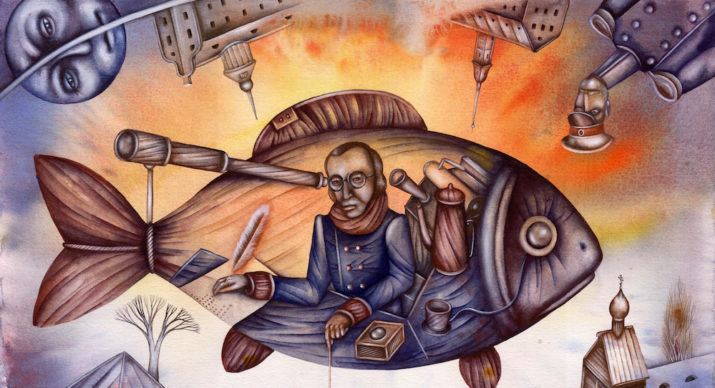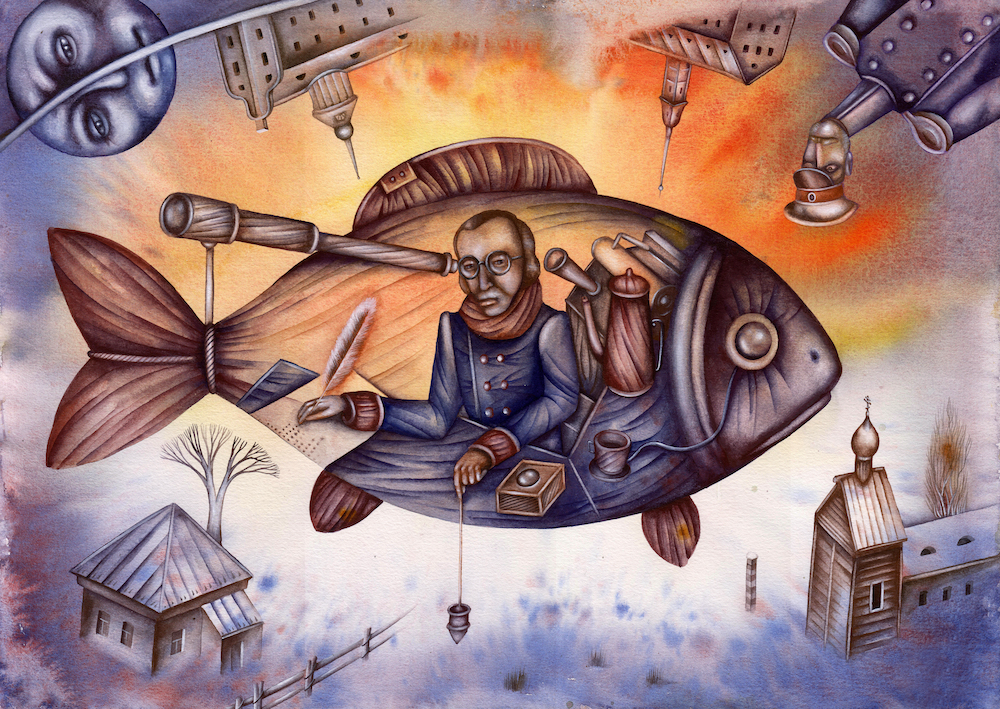

This is part of a roundtable on Marc Crépon’s Murderous Consent: On the Accommodation of Violent Death.
There are few words in our contemporary public discourse so fraught, so politically incendiary, and so persistently challenged in meaning and usage as “consent.” The traditional notion of consent involves rational agents who freely enter agreements based on a calculation of interests. Questions of ethical and legal responsibility are gauged by the consent of the involved parties, ascribing a contractarian model to scrutinize acceptable conduct. According to this view, consent and responsibility go hand in hand, and culpability derives from the violation of consent. However, claims of consent are also used to justify all sorts of violence. Marc Crépon’s Murderous Consent: On the Accommodation of Violent Death provocatively suggests there is something rotten at the core of consent itself. The notion of “murderous consent” turns the ordinary concept on its head, revealing its underside where one does not consent by what one does or says, but rather through accommodation, passivity, inaction, and the failure to speak up in the face of injustice and violence. Through his readings of literary and philosophical texts, Crépon explores how murderous consent inoculates itself against criticism, and anesthetizes individuals from ethical reasonability by occluding or accommodating violence. The breakdown of consent begins at the level of language itself, where murderous consent takes root in the ambivalence and insufficiency of our words condemning violence. Translating Murderous Consent therefore demanded an acute sensitivity to the fragility of words that are so easily coopted to serve violence.
Murderous consent functions by dividing and separating individuals from the unseen or far away consequences of their actions, producing “a fault or rift in our being-in-the-world.”[1] Crépon often employs the geological language of “ruptures,” [ruptures] “rifts,” [brèches] “fractures,” [brisures] “faults,” [failles] and “chasms” [gouffres] to describe the effects of murderous consent. These cracks between individuals and the world they inhabit illustrate a breakdown in ethical responsibility generated by the nefarious side of consent, which is on display in a host of contemporary political debates. The “consent of the governed” has long served as a guiding principle of representative governance, symbolized by the mythical “social contract” that grants the sovereign the monopoly on the legitimate use of force in exchange for a guarantee of citizens’ security and basic rights. We may wonder if this hypothetical contract is even operative in contemporary politics. Today, maintaining citizens’ consent is not used as a threat of revolt against an unresponsive tyrant, but more often as a cudgel to antagonize or suppress critics.[2] In the United States, considering the hundreds of thousands of people brought to the country in bondage against their will, and the millions that have endured over four hundred years of chattel slavery and systematic racial oppression, the notion that the state maintains its legitimacy through the consent of the governed has always been a deeply injurious fiction.
Consent is at the core of so many questions in contemporary politics. The #MeToo Movement has revealed the terrifyingly widespread disrespect of sexual consent hiding in plain sight in practically every aspect of society. Aggressors often resort to “implied” consent to justify misdeeds: when a woman’s appearance or clothing is used to argue “she was asking for it,” the essence of this justification for rape is an assertion of consent. In so many cases, survivors of sexual violence struggle to receive justice through the courts because, amongst other reasons, their accounts of non-consent are doubted. The ambiguous territory of “implied” consent is routinely used to blur the distinction between act and omission, and ultimately to excuse sexual violence. Muddling the limits of consent is an effective strategy for obscuring responsibility for all sorts of violations. Personal data collection on the internet has introduced a new frontier in debates over passive consent. Users regularly agree to the terms of use for digital platforms and services without reading what information they have consent to release; with the ease of a click, internet users nominally consent to massive violations of their privacy. But granting nominal consent does little to curb its manifold abuses. The staggering extent of personal data collection by companies such as Google or Facebook not only enables them to monetize this information to target consumer habits, it also allows them to weaponized this data to shape political opinion and manufacture consent. The cracks that emerge suggest a deeper problem with the notion of consent itself.
The formulation “murderous consent” is striking because it confronts us with an uncomfortable truth: while most of us would not actively consent to murder, just as we would prefer to think that we do not condone violence, we are all participants in a range of systems of violence which we generally accept with resignation, passivity, and silence. Murderous consent is the operating principle of the modern state, which on principle it must vigorously deny for its own legitimation. Marc Crépon defines murderous consent as “any accommodation with violent death, any habituation to murder, any compromise, in reality untenable, with principles […] that should forbid even the slightest exception, regardless of who the victims are.”[3] Crépon proposes a thoroughgoing critique of violence, equally applicable to the revolution as the counter-revolution, without accommodation for murder, whether it takes place here or far away, without distinctions based on nationality, race, religion, gender, sexuality, or other distinguishing factors. Murderous Consentexplores the ways that consent is imbricated in systems of violence—actively or passively, consciously or unwittingly—and how it is used to occlude ethical responsibility. In the United States, the massive protest movement for racial justice sparked by the police killing of George Floyd has underscored the urgent need to respond to the institutionalized violence perpetrated mainly against impoverished people of color, and it has laid bare the widespread complicity particularly of white people through inaction and silence. Excusing police violence committed in the name of “law and order” is a quintessential tactic of murderous consent.
The forms of murderous consent are so extensive and deeply rooted that there is inevitably a temptation to throw up our hands, and resign ourselves to accepting the inevitability of violence. We are all adept at finding excuses for inaction, whether by moral accommodation, utilitarian calculation, or simply by choosing to look away.[4] Murderous consent is, Crépon writes, “strengthened by resignation and a fatalistic ‘acquiescence.’”[5] This is the specter of what he defines as nihilism, which is the ultimate weapon of murderous consent: “doing nothing, saying nothing, or refusing all feelings, because nothing will ever change […] is always to consent to murder a little bit.”[6] Murderous consent is the normalization of acceptable forms of violence as unfortunate but inevitable; it is assuaging our guilt for civilian casualties of war by referring to them as “collateral damage”; it is shielding police officers from accountability for heinous acts of misconduct committed in a different neighborhood; it is discounting any form of violence because it takes place far away – whether in a far-off country or even within one’s own country—or because its victims are of a different race, religion, nationality, or gender.[7] The contractarian notion of consent proves utterly insufficient to respond to the ethical injunction against violence, and incapable of asserting what Crépon calls “ethicosmopolitics.”
The ineradicable quality of murderous consent highlights a phenomenon that Jacques Derrida calls “autoimmunity.” Crépon only refers to this notion once in Murderous Consent, but the logic of autoimmunity explains the stubborn persistence of murderous consent against attempts to wrestle it under the control of a law or principle. The notion of autoimmunity draws a parallel with the biological pathology in which the body fails to distinguish between its own antibodies and foreign antigens, causing the immune system to react to protect the body by attacking the body. Derrida suggests that a similar logic of the autoimmune response is at work in the organization of human societies. In “Faith and Knowledge” he writes, “the autoimmunitary [l’autoimmunitaire] haunts the community and its system of immunitary survival like the hyperbole of its own possibility. Nothing in common, nothing immune, safe and sound, heilig and holy, nothing unscathed in the most autonomous living present without a risk of autoimmunity.”[8] To protect the body politic against itself, a community will neutralize threats to its legitimation by any means necessary, even if this means attacking its own members. Derrida emphasizes, “no community <is possible> that would not cultivate its own autoimmunity, a principle of sacrificial self-destruction ruining the principle of self-protection,” in the name of “some sort of invisible and spectral sur-vival.”[9] The autoimmune response of a society to eradicate threats from within illustrates the breakdown of consent. Even when it is supposed to codify legal standards for what is permissible for individuals and states, consent is always prone to turn against itself, to violate its own terms of use, and to sacrifice those under its protection. By developing ever more insidious ways of justifying violence by occulting responsibility, murderous consent illustrates the logic of autoimmunity: it deflects criticism by violating consent in the name of consent, and it insists on the recourse to violence to protect against threats, real or supposed, in the name of some higher ideal. The sacrificial logic of murderous consent undercuts every attempt at a systematic critique of violence.
If, indeed, the state’s legitimacy derives from the consent of the governed, then citizens should be responsibility for violence the state commits in their name. Representative government can enact laws, treaties, and agreements that are intended to codify and restrict its violent excesses, but the autoimmunity of sovereignty is precisely the possibility that the state breaks its contractual agreements, violates its principles, and declares a “state of exception” to justify violence. Sovereignty cannot tolerate a law that limits its own sovereignty: to subject the state to rules that limit its authority is, Derrida explains in Rogues, “to turn sovereignty against itself, to compromise its immunity.”[10] To inoculate itself against threats to its legitimacy and reassert its exceptional hold on power, the state can break its own rules, usurp its self-imposed limitations, and justify violence based on the tacit consent of the people. “Pure sovereignty does not exist,” Derrida writes, “it is always in the process of positing itself by refuting itself, by denying or disavowing itself; it is always in the process of autoimmunizing itself, of betraying itself by betraying the democracy that nonetheless can never do without it.”[11] The paradox is that sovereign power reaffirms its legitimacy by asserting the possibility to commit violence, while it simultaneously denies its own sovereignty by justifying its actions based on the consent of the governed. This autoimmune response protects sovereignty from criticism. To affirm the principle of the consent of the governed is already to enable the system of murderous consent: “As soon as there is sovereignty, there is abuse of power and a rogue state. Abuse is the law of use; it is the law itself, the “logic” of a sovereignty that can reign only by not sharing.”[12] It is impossible to disentangle the operation of sovereignty from the abuse of its power because it is precisely in this way that sovereignty reaffirms its grip. Similarly, amidst the growing criticism of police tactics and enforcement, the failed history of police “reform” offers an instructive example of the auto-immune response: by making big promises and delivering half-measures, previous reforms have only inoculated the police against threats to their entrenched power.
Autoimmunity begins at the level of language itself. The words and euphemisms used to describe the victims of violence allow individuals to set aside their own complicity and responsibility. “Everything begins with naming,”[13] Crépon writes, “What state do we call a ‘rogue’ state? What states are we forbidden from calling rogue states? Who or what will we allow ourselves to characterize as ‘cruel’ or ‘barbarian’?” [14] By the same token, those who misrepresent today’s protesters as “rioters,” “looters,” and “thugs” also use naming to antagonize and discredit their opponents. The rhetoric of friend-enemy distinctions expresses conflicts in the reductive terms of civilization versus barbarism, freedom versus totalitarianism, or democracy versus tyranny. These Manichean oppositions insulate the state from criticism, and they depict the enemy as somehow less human and less deserving of ethical treatment. For Crépon, naming is a crucial technique of murderous consent for dividing blame and occluding responsibility: “naming lets us shut our eyes and ears,” naming establishes “a separation, however unjustifiable, between those who we think should be protected against violence by whatever means necessary and those for whom the violence they might experience is not considered an issue of basic principle.”[15] Euphemism becomes a weapon to distance and abstract from the victims of violence. For the same reason, when protesters demand “Say their names,” and repeat the full names of victims of police violence, it is to insist on the humanity of the victims as individuals, and the gravity of each loss.
Murderous consent operates by corrupting the language of justice, freedom, and democracy with violence. In his breathtaking reading of Günter Anders’ reflections on the atomic age, Crépon identifies the autoimmunity on display in the language of nuclear deterrence. Defenders of nuclear deterrence construct a binary choice between “totalitarianism or freedom,” and claim that only the possession of nuclear weapons—and the threat of their use—keeps us free from totalitarianism. But Anders keenly observes that no democracy could survive a nuclear exchange, much less remain democratic in its aftermath. According to the logic of deterrence, free nations must possess nuclear weapons to protect themselves from those who threaten freedom, even if freedom itself could not survive a nuclear war. “The ‘free world’ is one whose freedom is conditioned by threat,”[16] Crépon writes. The logic of nuclear deterrence is perhaps the ultimate case of murderous consent: the forced choice between “totalitarianism or freedom” implies the possession of nuclear weapons for the sake of deterrence, but even the hypothetical threat of a nuclear attack as deterrence is an embrace of murderous consent. Only a few powerful people could decide to launch a nuclear attack, but their decisions would have ramifications for all of humanity. Nothing could be less emblematic of the “free world.” Murderous consent appropriates our highest ideals as a cover for violence, turning the meaning of words against themselves.
Marc Crépon’s prose explores the intricacies, ambivalences, and contradictions of concepts such as consent, freedom, and violence. No ideal is safe from corruption by murderous consent. The autoimmunity of murderous consent is expressed in its uncanny ability to turn words against themselves, to paradoxically violate consent for the sake of preserving consent. A difficult aspect of translating Murderous Consent concerned the frequent use of “Janus words,” words that express a certain meaning as well as its opposite. Just as consent can validate ethical behavior or accommodate violence, Crépon frequently invokes notions that exhibit this doubled-edged quality, including “complicity” [complicité, complice, communauté complice],” “compromise” [compromis, compromission] “collaboration,” “(de)-solidarization,” and even “fraternity.” These notions can be deployed to invoke “ethicosmopolitics,” but they are also prone to being appropriated to justify exclusion or violence against the other. Camus speaks of “the small part of existence that can be realized on this earth through the mutual complicity of men,”[17] but complicity can also describe the accommodation of injustice and silent complicity to violence by bystanders. “Collaboration” can suggest people working together for the improvement of humanity, but the French word carries the stink of the “collabo” who aided the Nazis during the Second World War. “Fraternity” rather explicitly leaves out half of humanity. The positive or negative meanings of these words turn on the context of culturally specific historical signifiers. Crépon demonstrates that even the loftiest ideals of freedom, justice, democracy, “the people,” or “the nation” are all too easily coopted to enable violence.[18]
“The way in which dreams treat the category of contraries and contradictories is highly remarkable,” Freud observes in The Interpretation of Dreams, “it is simply disregarded.”[19] Just as the ambivalent character of dreams is at once heimlich and unheimlich, the meaning of a word or thing in a dream can uncannily express both itself and its opposite. For Freud, this creates a difficulty for interpretation because “dreams feel themselves at liberty […] to represent any element by its wishful contrary.” The antonymic meaning of the words and symbols in dreams suggests an underlying connection between these opposing terms. He relates this observation to the linguistic phenomenon of “primal words,” which are words from early languages that mean both themselves and their opposites.[20] For Freud, these “primal words” confirm “the regressive, archaic character of the expression of thoughts in dreams,”[21] as if the logic of the dream-work uncovers a deep-seated linguistic primitivism where antonyms remain undifferentiated. The language of Murderous Consent reflects the double-sided meaning of Freud’s “primal words:” consent’s autoimmunity is precisely its capacity to justify non-consent. Murderous consent infiltrates our words with violence, and it sours our ideals with passive justifications for murder—even where consent is supposed to insulate us from this risk. Indeed, murderous consent lulls us into a certain kind of dream where consent and non-consent recede into non-distinction. As Crépon describes the fate of the title character in Camus’ Caligula at the end of his bloody reign, “all that is left of his dream of justice is the mirror image that is violence. Ultimately, having pursued his dream to the ends of the Earth, he finds only a distorted image of his own freedom—neither the world nor justice.”[22] Facilitated by murderous consent, Caligula’s dream of justice is unmasked as nothing but a façade for violence. Snapping out of the dream and awakening to the violence discreetly justified by murderous consent demands that we reevaluate the notion of consent with clear eyes. This is the great merit of Marc Crépon’s Murderous Consent, and the difficult task for his translators.
Jacob Levi is a Ph.D candidate in the Department of Comparative Thought and Literature at Johns Hopkins University, and a graduate of the École Normale Supérieure. He is currently in the final stages of his doctoral dissertation on Jewish intellectuals in Paris during the 1960s, entitled “The Adventure of the Book: Jabès, Derrida, Levinas.”
References:
[1] Marc Crépon, Murderous Consent: On the Accommodation of Violent Death, (New York: Fordham University Press, 2019), 25.
[2] When the current president of the United States told four congresswomen of color in the summer of 2019 to “go back [to the] places from which they came,” and “if you don’t like it here, you can leave,” he ostensibly invoked the logic of consent to summon the ethno-nationalistic conception of the state, based on the connection between blood and soil. The comments clearly imply that criticism of the president – especially from women of color – is tantamount to a breach of loyalty to the state.
[3] Crépon, 2.
[4] A popular slogan at recent protests in the United States following the police murder of George Floyd has been “white silence equals violence.” This succinct expression of murderous consent illustrates that it does not require active participation in police violence to be complicit in the systematic oppression of Black people in the United States, of which police violence is only the most visible and brutal symptom. The slogan reveals that, particularly for white people, merely remaining silent and doing nothing in the face of such staggering injustice is tantamount to complicity. This is what Martin Luther King Jr. described in the “Letter from a Birmingham Jail” as the problem of the “white moderate,” who is “more devoted to ‘order’ than to justice,” who “prefers a negative peace which is the absence of tension to a positive peace which is the presence of justice.” The Black Lives Matter protest movement has highlighted the inadequacy of the well-intentioned liberal who is content to merely claim that he or she is “not racist,” and instead the movement calls for more proactive forms of “anti-racism” that contribute to dismantling systemic injustice and institutionalized forms of white supremacy. Confronting silent complicity is a key tool for uprooting the mechanisms of murderous consent.
[5] Crépon, 3.
[6] Ibid, 3-4.
[7] The expressions of moral accommodation by those who engineer and support these policies are often couched in the language of consent. Innocent victims of drone strikes are casually blamed for their own deaths because they should have known not to be at the same wedding or restaurant as known terrorists. Europeans can wash their hands of responsibility for the “economic migrants” who die in shoddy boats crossing the Mediterranean Sea, because they knew the risks they were taking. The United States can pass off separating Central American children from their parents and putting them in squalid prisons because they broke the law by entering the country illegally. Victim blaming is endemic to murderous consent.
[8] Jacques Derrida, “Faith and Knowledge: Two Sources of ‘Religion at the Limits of Reason Alone,” Acts of Religion, (New York: Routledge, 2002), 82.
[9] Ibid, 87.
[10] Derrida, Rogues: Two Essays on Reason, (Stanford: Stanford University Press, 2005), 101.
[11] Ibid, 101.
[12] Ibid, 102.
[13] Crépon, 117.
[14] Ibid, 118.
[15] Ibid, 122-123.
[16] Ibid, 144.
[17] Ibid, 27.
[18] When Steve Bannon described the Trump administration’s task in 2017 as the “deconstruction of the administrative state,” a thinly veiled declaration of his white nationalist agenda, he sought to coopt the leftist notion of deconstruction as a tool for subverting power, disrupting hierarchies, and seeking liberation. Whether intentional or not, Bannon’s comment inverts Derrida’s position in “Force of Law” where he argues that “deconstruction is justice,” and his insistence – contra Bannon’s regressive ideological views – on the “undeconstructability of justice” (Derrida, “Force of Law” in Acts of Religion, 243).
[19] Sigmund Freud, The Interpretation of Dreams in Standard Edition, vol. 4, (London: Hogarth Press, 1953), 318.
[20] In a short 1910 piece entitled “The Antithetical Meaning of Primal Words,” Freud discusses Karl Abel’s philological evidence that ancient Egyptian featured certain “primal words.” Freud suggests that traces of this phenomenon are even visible in the Latin terms sacer, which means both sacred and cursed, or altus, which means both high and deep, and even the highly antonymic English word, “without.”
[21] Freud, “The Antithetical Meaning of Primal Words,” in Standard Edition, vol. 11, 161.
[22] Crépon, 20.
Photo: Travel in the big fish
Published on August 4, 2020.




